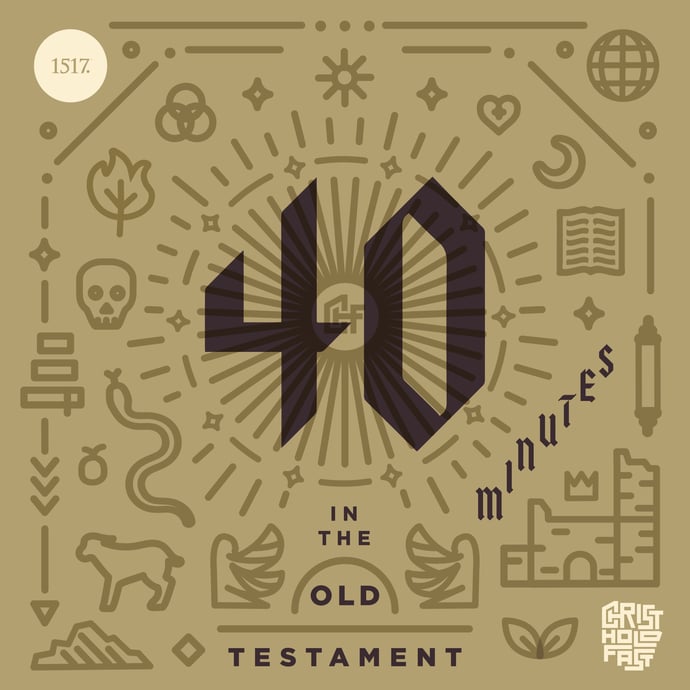God tells the people not to do certain things for the sake of the dead and to refrain from eating different animals. Why does God command these things?
Podcasts
Each 1517 Podcast is dedicated to delivering Christ-centered content through weekly, monthly, and seasonal audio platforms. Listen online or on your favorite podcasting app.
Author
- All Authors
- Aaron Zimmerman
- Adam Francisco
- Amy Mantravadi
- Blake Flattley
- Bob Hiller
- Bradley Gray
- Brian W. Thomas
- Bror Erickson
- Bruce Hillman
- Caleb Keith
- Chad Bird
- Chris Rosebrough
- Christopher Gillespie
- Cindy Koch
- Craig Donofrio
- Dan van Voorhis
- Daniel Deen
- Daniel Emery Price
- Darrin Sheek
- David Andersen
- David Rufner
- David Zahl
- Debi Winrich
- Delwyn Campbell
- Donavon Riley
- Doug Klembara
- Edward Killian
- Elyse Fitzpatrick
- Erick Sorensen
- Flame
- Grant Klembara
- Gretchen Ronnevik
- Haroldo Camacho
- Jacob Smith
- Jared C. Wilson
- Jeff Mallinson
- Jeffrey Pulse
- Jessica Thompson
- Jim Nestingen
- Joel Fitzpatrick
- Joel Hess
- John Andrew Schreiner
- John Bombaro
- John T. Pless
- John W. Hoyum
- John Warwick Montgomery
- Katie Koplin
- Kelsi Klembara
- Ken Sundet Jones
- Magnus Persson
- Matt Popovits
- Michael Berg
- Michael Horton
- Nick Lannon
- Paul Koch
- Peter Nafzger
- Philip Bartelt
- Raleigh Sadler
- RJ Grunewald
- Robert Kolb
- Rod Rosenbladt
- Ron Hodel
- Sam Leanza Ortiz
- Sarah Condon
- Sarah Crowder
- Scott Davis
- Scott Keith
- Steven Paulson
- Tanner Olson
- Troy Neujahr
- Uwe Siemon-Netto
- Wade Johnston
- William Cwirla
-
God says not to trust people or prophets if their words don’t line up with what God has spoken. But what if they perform signs and wonders?
-
God tells the people to destroy all the worship places in the land He has given to Israel. What exactly is He doing in this command? What is He preserving by destroying these other things?
-
God reminds His people that He does not wink at sin. Why is it so important for us to remember all the things God has done in scripture?
-
God makes sure that Israel understands why He destroyed certain nations and why He gave them the promised land. Is the Old Testament about works while the New Testament is about grace?
-
God explains that He has humbled Israel for their own good. How should we view the discipline of God? What does it mean that man cannot live by bread alone?
-
How does the present way the Israelites speak of the exodus help us with how we understand our salvation? How do we deal with the judgment of God on entire nations of people?
-
Chad and Daniel start chapter 6 of Deuteronomy. God tells the people to listen and to teach the word of God. What is the significance of the language of milk and honey?
-
Chad and Daniel continue discussing the “Ten Commandments”. What does it mean to take the Lord’s name in vain? What does it mean to “keep” the Sabbath?
-
God explains what His name means and contrasts Himself with every false god. Do the “10 Commandments” apply to Christians? Is “10 commandments” the right way to view these words from God?
-
We are told to fear God. Does that mean we are to live our whole life being afraid of God or is something else going on? What is the difference between listening to God and obeying Him?
-
Moses continues addressing the people. He recounts how God has fought for Israel and how he pleaded with God a final time to let him enter the promised land.
